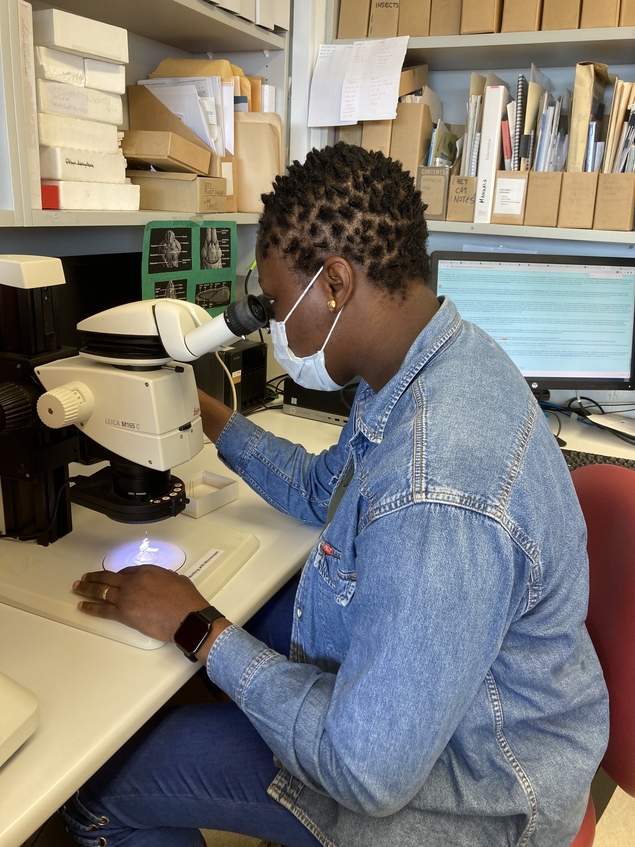By Charuni Pathmeswaran
Ifeoma Ugwuanyi is a biology PhD candidate at the Tree of Life lab at UNSW. Ifeoma is an accomplished UNSW Woman in Maths and Science Champion who is passionate about science communication and engages with the public on issues related to insect and disease management and control. Ifeoma has worked on projects involving insect vectors, tropical disease control, pest management, and taxonomy.
A biologist by training, Ifeoma specializes in Entomology (the study of insects) and Parasitology (the study of parasites). For her PhD, she is currently focusing on insect systematics, which is the science of classifying and naming insects. Specifically, Ifeoma is analyzing the DNA of bed bugs (infamous for their agonizing bites) and their relatives to see where they sit in the true bug tree of life. She is also looking at the evolution of traumatic insemination. This is where the male using its sharp genital penetrates the female during copulation and ejaculates into her blood system. The final part of her PhD will be using AI to identify different species of bed bugs.

Prior to her PhD, Ifeoma was primarily working on the control of insects that transmit diseases to humans and plants. She has also done research on the control of tropical diseases (eg: malaria, river blindness, sleeping sickness). Growing up, she didn’t see herself doing research on insects and tropical diseases. She didn’t know any Entomologist or Parasitologist. But as luck will have it, she found herself doing a degree in Parasitology and Entomology as an undergrad. At first, she didn’t fully embrace the course as she earlier wanted to study medicine. However, when she started doing specialized courses on insects, she was amazed by forensic entomology (how insects are used to solve crimes)! This is how she found herself enjoying the work she does on insects, both the beneficial ones like the honeybees as well the harmful ones, alongside doing research on tropical diseases.
Seeing the impact of her research and how it helps improve lives, Ifeoma continues to stay passionate and motivated about her work. A few years ago, Ifeoma was part of a team of Entomologists engaged by the World Health Organization to collect and identify black flies in Africa. This fly transmits a parasite that causes river blindness in Africa. Their efforts were part of the success that brought river blindness under control in Africa.
Ifeoma enjoys dancing during her spare time. She (cheekily) claims she’s not a good dancer but says it helps to destress, along with some good music.
When asked what words of advice she had for girls interested in pursuing a career in STEM, Ifeoma had this to say: “Just do it; strive to be good at what you do so that you cannot be ignored.”
To find out more about Ifeoma’s research, follow her on Twitter.

